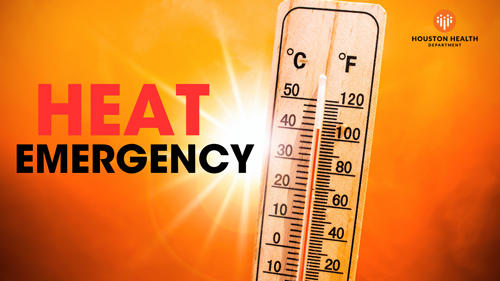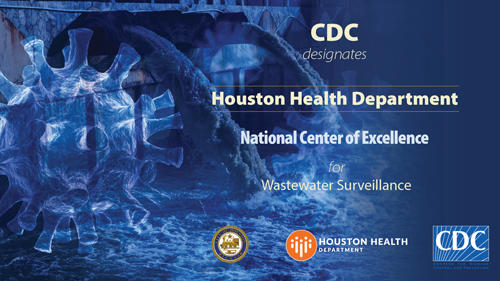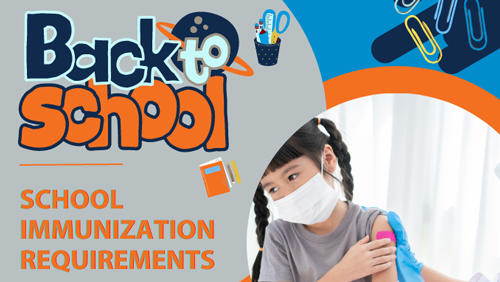Page last reviewed: August 18, 2023
Houston HealthScope - August 18, 2023

City of Houston facilities serve as cooling centers this weekend

City of Houston libraries will serve as cooling centers Saturday, August 19, and two multi-service centers and a community center on Sunday, August 20, for Houstonians needing to take refuge from the heat.
Houston libraries and multi-service centers will function as cooling centers during normal business hours on weekdays and Saturdays. The Central Library downtown is unavailable as a cooling center.
The following locations will open from 3 p.m. to 7 p.m. on Sunday, August 20:
- Acres Homes Multi-Service Center, 6719 W. Montgomery Rd.
- Sunnyside Multi-Service Center, 4410 Reed Rd.
- Moody Community Center, 3725 Fulton St.
Community centers operated by the Houston Parks and Recreation Department will open to the public after the conclusion of daily programming for enrolled participants.
The YMCA of Greater Houston will open its locations over the weekend for people needing to seek relief.
The National Weather Service predicts heat index values will reach as high as 109 through Sunday.
The City of Houston activates its Public Health Heat Emergency Plan when the Houston area begins to experience excessive heat. It activates the plan when a heat advisory or an excessive heat warning is expected to last two or more consecutive days.
People without adequate transportation to a designated cooling center can call 3-1-1 to request a free ride. Transportation is only to and from the cooling centers; transportation to other locations is unavailable.
The Houston Health Department recommends the precautions below to avoid heat-related illness such as heat exhaustion or heat stroke.
- Drink more water. Drink lots of liquids even before getting thirsty, but avoid beverages with caffeine, alcohol, or large amounts of sugar because these can result in the loss of body fluid.
- Conduct outdoor work or exercise in the early morning or evening when temperatures are not as high. Outdoor workers should drink plenty of water or electrolyte replacement beverages and take frequent breaks in the shade or in an air-conditioned facility. People unaccustomed to working or exercising in a hot environment need to start slowly and gradually increase heat exposure over several weeks.
- Wear light-colored, loose-fitting clothing that permits the evaporation of perspiration.
- Do not leave infants, children, senior citizens, or pets unattended in a parked vehicle, even if the windows are cracked open. Check to make sure everyone is out of the car and don’t overlook children who may have fallen asleep.
- Wear a wide-brimmed hat to help prevent sunburn as well as heat-related illness. Apply sunscreen, which protects from the sun’s harmful rays and reduces the risk of sunburn.
- Seek accommodations in air-conditioned facilities during the heat of the day if the house is not air-conditioned: a relative’s home, multi-service centers, malls, movie theaters, libraries, etc.
- Take frequent cool baths or showers if your home is not air-conditioned.
Symptoms of heat exhaustion include weakness, dizziness, excessive sweating, cool or moist skin, nausea or vomiting, muscle cramps, and a fast and weak pulse. People experiencing these symptoms should lower their body temperature by getting to a cooler place, drinking water, taking a cool shower or bath and resting.
A throbbing headache, red, hot, and dry skin (no longer sweating), extremely high body temperature (above 103°), nausea or vomiting, confusion, loss of consciousness and a rapid, strong pulse are signs of heat stroke. If these symptoms occur, call 9-1-1 immediately and try to lower the person’s body temperature until help arrives.
People may seek air-conditioning in city multi-service centers, libraries and recreation centers, even when the Public Health Heat Emergency Plan is not activated. For more information or to find the nearest cooling center location or an air-conditioned city facility, people can call 3-1-1.
What is the Wastewater Monitoring Dashboard?

The numbers began an upward trek with COVID-19 positivity rates increasing in small but steady increments since early July. This is a notable reversal after months of declining coronavirus numbers from earlier this year.
Although the Public Health Emergency is no longer in effect, COVID-19 is still a major threat.
According to the Centers for Disease Control and Prevention (CDC), new variants are emerging as we “speak” with the latest sub-variants impacting the Houston metropolitan area in drastic numbers. The Houston Health Department’s (HHD) City of Houston Wastewater Monitoring Dashboard shows a 56% increase in Houston’s viral load since the end of July 2023.
The Wastewater Monitoring Dashboard is the innovative tool of an HHD-led alliance of academic and city partners at the beginning of the COVID-19 pandemic. Wastewater monitoring supplies an extensive amount of valuable information that could act as a critical early warning of emerging infectious diseases.
With weekly results displayed, the interactive dashboard provides ample data to evaluate the level of viral load in the wastewater from the area water treatment plants to understand the frequency of COVID-19 viral particles in our waste.
The success of the Wastewater Dashboard and partnerships with Houston Public Works, Rice University’s Civil and Engineering Department and Statistics Department, and Baylor College of Medicine earned HHD the CDC recognition as a National Wastewater Surveillance System Center of Excellence.
“After two and a half years of dedication to this initiative, wastewater analysis has become a key indicator of COVID-19 trends,” said Dr. Loren Hopkins, chief environmental science officer for the health department and professor in the practice of statistics at Rice University.
The Wastewater Dashboard is a public site and is available 24 hours a day, 7 days a week. From the site, you can monitor trends, view school reports for COVID-19 and Influenza, and view Frequently Asked Questions (FAQs).
To learn more about the Wastewater Dashboard.
Houston Health Department Tackles Diabetes with DAWN

Over 2.8 million Texans battle some type of diabetes – Type I, Type II, or gestational diabetes. When the amount of glucose (sugar) in your blood is too high, diabetes occurs. Having high blood sugar could contribute to major problems with your health. Heart disease, stroke, and other catastrophic complications, including kidney failure, blindness, and amputation of a toe, foot, or leg, are all serious risks for people with diabetes.
The Houston Health Department’s Diabetes and Wellness Network (DAWN) dedicates resources and manpower daily to the Houston community in hopes of being a resource to educate, inform, and help mitigate the rising cases of diabetes throughout the city.
Celebrating its 10th Anniversary, DAWN goal is to allow those individuals struggling with diabetes access to free diabetes self-management education and many other health-related services to reduce and prevent chronic disease. Throughout the year, DAWN hosts education courses on diabetes: basics, self-management, and prevention as well as classes on hypertension. They also provide cooking demonstrations, nutrition education workshops and a peer support group.
“We want to provide the community with the most optimum care available. DAWN is providing tools to make the program more accessible by teaching more, increasing access to materials, and helping participants create and achieve their healthy lifestyle goals,” said Elizabeth Appleton, Chief Nurse for Houston Health Department.
To learn more about DAWN or check out Go Healthy Houston.
It's Back to School Season! Are your child's immunizations up to date?

When it comes to back-to-school prep, you have the agenda for clothes shopping and a list of required school supplies ready to make your child(ren)’s first day at school seamless.
What about your health checklist?
There are necessary check-ups your child needs before heading back. Vaccines, check-ups, dental exams. They’re appointments we should all be making regularly but especially before school.
Research shows strong correlations between healthy students and academic achievements. Healthy students are better learners. Vaccinations protect students from diseases and keep them healthy. It all ties together.
At the Houston Health Department’s health centers, parents can take their children for their back-to-school immunizations as well as other health and social well-being needs including dental.
Be the reason your student starts off the school year with an A in Health. Get them immunized with the necessary immunizations today.
The Centers for Disease Control and Prevention (CDC) has a quick chart to reference for what immunizations are required based on the age of the child: 0-6 years and 7-18 years.
Peddle with HHD - August was a success
On August 11, 2023, bright and early before the sun, a dedicated group of Houston Health Department (#HHD) bicyclists linked up at the Department's main office on N. Stadium Drive for their monthly morning ride down Brays Bayou.
